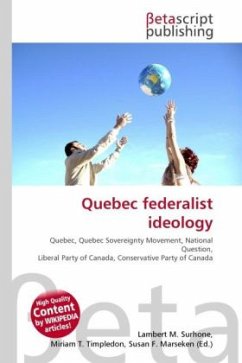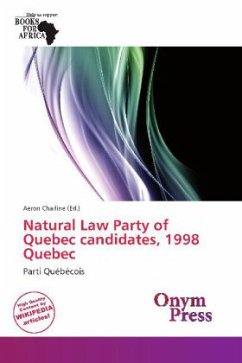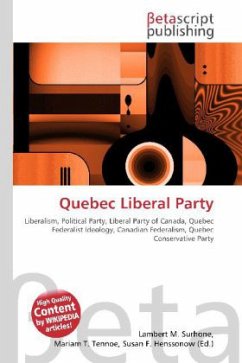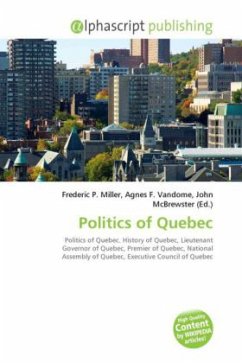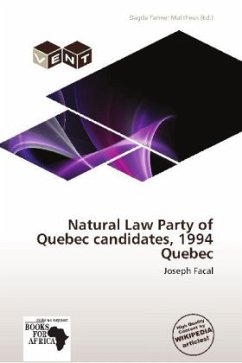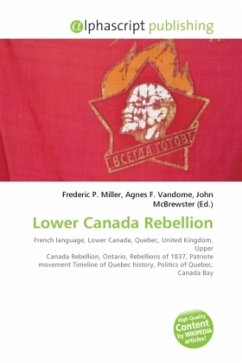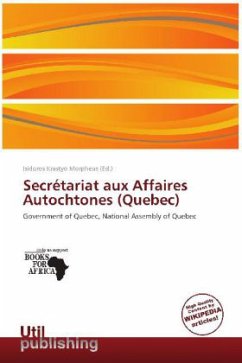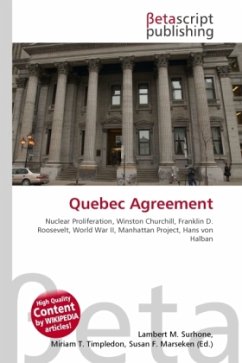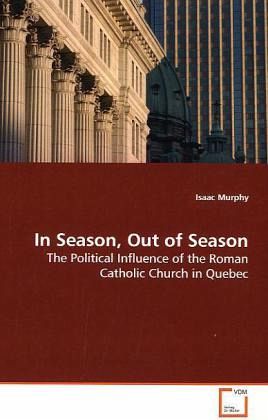
In Season, Out of Season
The Political Influence of the Roman Catholic Church in Quebec
Versandkostenfrei!
Versandfertig in 6-10 Tagen
39,99 €
inkl. MwSt.

PAYBACK Punkte
20 °P sammeln!
Why did the religious practice and politicalinfluence of the Roman Catholic Church in theCanadian Province of Quebec decline so precipitouslyfollowing the events of the 1960s? This period,known as the Quiet Revolution, coincided with thegreat international event of the Catholic Church, theSecond Vatican Council. While the Council is seenpositively by many as a time of great reform, yetothers identify it as initiating a period of declinefor the church in Quebec and elsewhere. Afterexamining the decline of ecclesial politicalinfluence in the twentieth century by looking atchurch-state relations ...
Why did the religious practice and political
influence of the Roman Catholic Church in the
Canadian Province of Quebec decline so precipitously
following the events of the 1960s? This period,
known as the Quiet Revolution, coincided with the
great international event of the Catholic Church, the
Second Vatican Council. While the Council is seen
positively by many as a time of great reform, yet
others identify it as initiating a period of decline
for the church in Quebec and elsewhere. After
examining the decline of ecclesial political
influence in the twentieth century by looking at
church-state relations with regard to education and
marriage, this book explores how conciliar reforms
diminished the distinctiveness of Roman Catholic
cadres. This hurt recruitment prospects for the
religious orders and the priesthood. The church in
Quebec because of this and other political factors,
including the rise of linguistic nationalism, ceased
to be a strong well-disciplined institution capable
of wielding significant political influence. This
analysis should be of interest to all those who study
the relationships between religion and politics,
church and state.
influence of the Roman Catholic Church in the
Canadian Province of Quebec decline so precipitously
following the events of the 1960s? This period,
known as the Quiet Revolution, coincided with the
great international event of the Catholic Church, the
Second Vatican Council. While the Council is seen
positively by many as a time of great reform, yet
others identify it as initiating a period of decline
for the church in Quebec and elsewhere. After
examining the decline of ecclesial political
influence in the twentieth century by looking at
church-state relations with regard to education and
marriage, this book explores how conciliar reforms
diminished the distinctiveness of Roman Catholic
cadres. This hurt recruitment prospects for the
religious orders and the priesthood. The church in
Quebec because of this and other political factors,
including the rise of linguistic nationalism, ceased
to be a strong well-disciplined institution capable
of wielding significant political influence. This
analysis should be of interest to all those who study
the relationships between religion and politics,
church and state.




